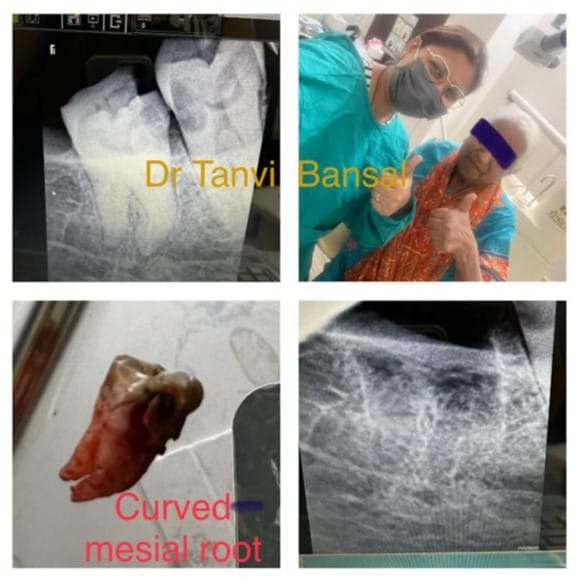Wisdom Teeth Removal
WHAT ARE WISDOM TEETH?
Wisdom teeth, aka third molars, are the last set of teeth to develop and emerge in oral cavity. They usually appear between the ages of 17 and 25, at the very back of your mouth behind your existing molars.
While our ancestors needed these teeth to chew raw, tough foods, modern diets and utensils have made wisdom teeth largely unnecessary. Some people may have all four wisdom teeth, while others might have fewer or none at all – a normal variation in human anatomy.
When properly aligned, wisdom teeth can be a valuable asset. However, they often become misaligned or impacted, leading to various dental problems. Misalignment can cause crowding, damage to adjacent teeth, or jaw issues. Partially erupted wisdom teeth creates openings for bacteria, leading to increased risk of infection & decay.
Due to their location, it becomes difficult to clean wisdom teeth properly. This makes them more susceptible to gum disease and cavities. In many cases, dentists recommend removal to prevent future complications.

What problems can a wisdom tooth cause?
Many people have impacted wisdom teeth, due to lack of enough room for tooth to emerge properly. These teeth may grow at odd angles, potentially damaging adjacent teeth or remaining trapped in the jawbone.
Crowding: As wisdom teeth try to emerge in a mouth with limited space, they can cause crowding of existing teeth. This potentially means undoing years of orthodontic corrections.
Pain and Discomfort: Wisdom teeth while erupting causes significant pain. This pain is even more if they’re impacted or growing at an angle.
Infections and Abscesses: Partially erupted wisdom teeth create pockets where bacteria thrive. This further leads to infections or abscesses.
Gum Disease: Their positioning in the oral cavity makes it difficult to clean. Eventually, lack of oral hygiene maintenance leads to increased risk of gum diseases.
Cysts or Tumors: Their positioning in the oral cavity makes it difficult to clean. Eventually, lack of oral hygiene maintenance leads to increased risk of gum diseases.
Tooth Decay: Wisdom tooth that are partially erupted are more susceptible to decay. This is because of their hard to reach location.
